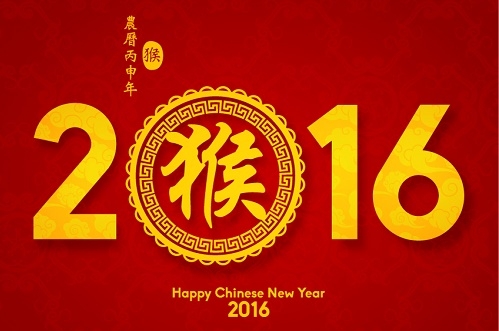
By Siah Hwee Ang*
Chinese New Year is celebrated in January or February each year. This year, it falls on February 8th and presents a welcome distraction in light of the dismal start to the year for China’s stock markets and the ongoing worries about its economic slowdown.
The New Year festivities, also known as the Spring Festival, last for 15 days. New Zealanders who deal a lot with China may actually find themselves on a prolonged summer break, as many business activities slow down during the festival.
The Chinese New Year
The celebrations of Chinese New Year reach far beyond Mainland China, with several other countries and territories joining the festivities. In addition to Mainland China, Hong Kong, Macau, Taiwan, Singapore, Thailand, Cambodia, Indonesia, Malaysia, Mauritius and the Philippines, many Western countries with significant Chinese populations also celebrate this occasion.
Events to mark Chinese New Year are becoming more commonplace in the U.S., Canada, the U.K., Australia and New Zealand. It is estimated that more than 2,000 events, including concerts, film screenings, parades and exhibitions will be held in more than 140 countries across the world to celebrate the Spring Festival.
Within China, the festival prompts hundreds of people to flock across the country back to their home towns for celebration.
Traditionally, Dragon dances and lion dances were popular ceremonies during the festivities. Over time, however, they have become less prevalent. The Chinese New Year’s Eve reunion dinner remains the main highlight of the festival for most people. For others, it is the perfect time to cash in on not-to-be-missed business opportunities.
Consumption extravaganza
At the business end of things, the Spring Festival can be considered a family version of Singles’ Day. Last year’s Singles’ Day on November 11th saw a frenzy of consumer spending.
On that day, the value of transactions on Alibaba’s website surpassed expectations to reach a value of 91.2 billion Yuan (NZ$21.9 billion) in a single day, a 60 percent increase over 2014 figures. 68 percent of orders were placed via mobile devices.
We can expect the same to happen during the Chinese New Year.
Major multinational brands and retailers on Tmall Global started preparing for the Chinese New Year as early as November last year.
Unlike Singles’ Day, it is anticipated that major online purchases will centre around food and health products.
Pre-sale statistics from Tmall Global suggest that most imported products sold ahead of the New Year festivities are maternity and infant products (32 percent), beauty products (17.5 percent), and health products (17 percent). These products are largely imported from the U.S., Japan, Germany, South Korea and Australia.
JD.com kicked off its festival sales on January 11th, offering consumers a range of products including food, beverages, baby and maternity products, and cosmetics.
Amazon also launched its sales on the same day. Its logistics will be able to deliver to 1,400 Chinese cities within China within a day or two.
Aligning business and culture
Very few countries can boast festivals that make large companies in a single day or week. China does present a few of such opportunities each year.
Exploring these opportunities should be given due consideration.
Sales aside, these celebrations also provide an opportunity for foreign businesses to align with the local culture, or at least to demonstrate to Chinese consumers that they are trying to do so.
Businesses with a good product or service to offer should not be shy to take this step, even if it means a slight shift in proposition or business model for the market.
It can be as simple as opting for pricing that involves the number ‘8’. The popularity of ‘8’ was evident in relation to the Beijing Olympic Games, which commenced at exactly at 8:08 am on August 8th 2008. Or even displaying the colour red in some form on packaging. All efforts count.
Businesses already working with Chinese counterparts have an opportunity to show cultural sensitivity through linguistic means; for example, by using certain congratulatory phrases such as the ones below.
From me, to all ethnic Chinese who are reading this article, and to those of you who come into contact with China on a day-to-day basis: 恭喜发财 (gong xi fa cai)! 万事胜意(wan shi sheng yi)! Happy Lunar New Year!
---------------------------------------
*Professor Siah Hwee Ang holds the BNZ Chair in Business in Asia at Victoria University. He writes a regular column here focused on understanding the challenges and opportunities for New Zealand in our trade with Asia.
2 Comments
A very good summary professor, gives us a snap shot of the yearly celebration! A point to note is despite all those "hard-landing" headlines, the even fasterly growing number of holiday makers (offshore) from mainland China during this period should be well targeted/managed by NZ tourism industry to kick start the new year!
Postage will be delayed from China, LOL but I am looking forward to the food and events :D

We welcome your comments below. If you are not already registered, please register to comment
Remember we welcome robust, respectful and insightful debate. We don't welcome abusive or defamatory comments and will de-register those repeatedly making such comments. Our current comment policy is here.